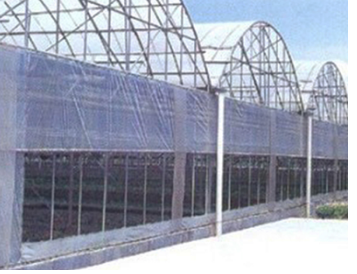Economic Observer: How do you view the current progress in financial reform in the Eurozone?
Starr: I think the EU has made significant progress in this regard. As you know, one of the measures to solve the financial crisis is to establish a banking alliance, so that the European Central Bank becomes a real regulator, rather than the national authorities to regulate the big banks. This is a direction of the current financial industry reform. The occurrence of the international financial crisis indicates that we need to establish a sustainable economic development model at the world level. This model must rely less on the financial industry, rely less on natural resources, and must take into account social and environmental needs.
Economic Observer: Is the European economic recession over, and how do you view the serious imbalances within the euro zone countries?
Stahl: Recent statistics show that the internal economic reconstruction process in the past has been significantly improved, such as Portugal. Spain also has a certain degree of recovery. The structural public budget has also improved significantly, so I think the European recession is over.
But this does not mean that there are no other problems in Europe. To reduce high unemployment, we need to turn our attention to investment. European countries with weaker competitiveness in the past have also found their own competitive advantages. Now we are focusing on the need for Europe to increase its investment rate and thus increase its growth rate. For example, Germany has strong internal demand, so I also expect Germany's outstanding performance to contribute to reducing imbalances within Europe. This imbalance does exist, but the EU also has policies to help those countries that are in deficit. A coalition that supports member states allows members to have varying degrees of internal imbalances. The EU's response is that we have recently introduced the next five-year plan to ensure that troubled member states receive EU assistance. Economic recovery at the expense of rising unemployment is not a long-term solution.
Economic Observer: You once said that the root cause of the European crisis is the existence of an incomplete economic and monetary union when the EU was established. How can it be improved?
Starr: In order to establish a sustainable economic model, the EU needs to develop new mechanisms to enhance its internal coordination and help small countries. At the same time, the EU also needs to carry out reforms to further develop the EU internal market and enhance its competitiveness.
Through legislation, the EU has made significant progress on this issue, and we are also working hard on how fiscal policy can be implemented as a whole. The EU has now established a permanent support mechanism. If a member state is in trouble for the first time, the EU will support it accordingly. In addition, the EU passed legislation that requires the budgets of countries to be reviewed and approved by the European Commission before implementation. If a country's budget is contrary to the overall interests of Europe, the EU has the right to require member states to amend it. The establishment of a cooperative mechanism is conducive to reducing the negative impact of national policies, and structural problems can be discovered earlier than before.
Economic Observer: How do you view the current bilateral relations between China and Europe, especially trade relations?
Stahl: The EU is the largest market in the world. At present, the trade relationship between the EU and China is the focus of bilateral issues. The two sides have gained consensus in the past strategic cooperation and promoted economic growth in trade exchanges, but there is still need to coordinate consultations on intellectual property rights. We need further consultation to ensure that bilateral interests are guaranteed in the exchange of trade and services. Therefore, I also hope that China-EU will make further progress in the next economic and trade dialogue.
China can strengthen its strategic partnership with the EU to enhance the strategic partnership with the EU to tide over the difficulties together; China can also cooperate with the EU to establish clearer rules for financial markets and promote balanced development of trade relations. Promote investment and promote a low carbon economy.
1.Good temperature adjustment. It can provide a good planting environment, and be suitable for most kinds of crops. There structure is suitable in structure design, high in strength, nice appearance.
2.The PV mounting structure will use Aluminum AL6005-T5, which is light, highly strength and long life. The whole structure`s will be designed under the policy of easy installation and easy operation.
3.To make sure the life of greenhouse can be in harmony, the greenhouse mainly structure will use the Hot galvanized steel to make sure the service lift can be around 25 years.
4.The structure can be used in the areas with high latitude and long sunshine duration time. In the daytime, the PV system absorb and storage those over sunshine, and then it can be used as warming and fill-in light to make the energy to be used in recycle.

Steel Structure Greenhouse,Steel Structure Prefabricated Greenhouse,Greenhouse Prefab Steel Structure,Long Span Greenhouse Steel Galvanized
Zhongda Steel Structure , http://www.zhongdametal.com
